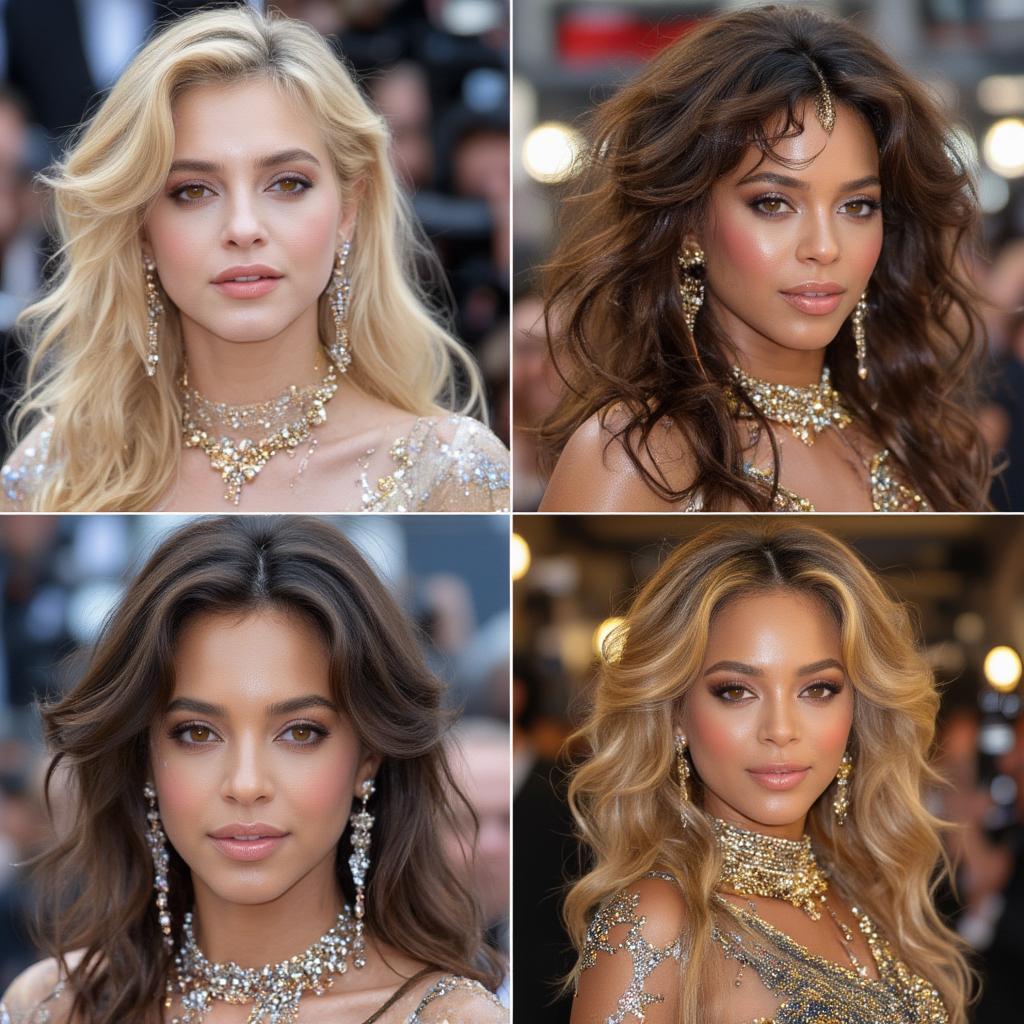Who Is the Undisputed Queen of Pop Music?

The phrase “Queen Of Pop Music” often sparks debates and ignites passions among music lovers. It’s a title bestowed upon female artists who have not only achieved commercial success but have also significantly impacted the music industry and popular culture. While the crown has been worn by many talented women throughout history, the question of who truly reigns supreme remains a complex and fascinating one.
Defining the Queen: Beyond Record Sales
While record sales and chart-topping hits are undeniable indicators of success, the title of “queen of pop music” transcends mere numbers. It encompasses a broader spectrum of qualities, including:
- Artistic Influence: A true queen sets trends, influences musical styles, and inspires generations of artists. Her music pushes boundaries and redefines the pop landscape.
- Cultural Impact: Her influence extends beyond the realm of music, impacting fashion, social attitudes, and popular culture. She becomes a cultural icon, representing a specific era or movement.
- Stage Presence and Performance: A queen commands the stage with charisma and captivating performances. Her live shows are legendary, leaving a lasting impression on audiences.
- Longevity and Relevance: Her music endures the test of time, remaining relevant and influential across generations. She continuously evolves and adapts to changing musical landscapes.
The Reigning Contenders for Queen of Pop Music
Throughout history, several iconic female artists have been hailed as the queen of pop. Each has left an indelible mark on the music industry, shaping the sound and style of pop music:
Madonna: The Provocateur and Innovator
Madonna’s reign began in the 1980s, and she quickly established herself as a force to be reckoned with. Her provocative style, groundbreaking music videos, and constant reinvention cemented her status as a pop icon. From “Like a Virgin” to “Vogue,” Madonna’s music challenged societal norms and pushed creative boundaries. She continues to evolve and experiment, remaining a relevant force in pop culture.
Whitney Houston: The Voice
With a voice that could move mountains, Whitney Houston dominated the 1980s and 1990s. Her powerful vocals and emotional performances captivated audiences worldwide. Hits like “I Wanna Dance with Somebody” and “I Will Always Love You” showcased her extraordinary talent and cemented her place among music legends.
Mariah Carey: The Songbird Supreme
Known for her five-octave vocal range and impressive songwriting skills, Mariah Carey emerged in the 1990s as a dominant force in pop music. Her signature whistle notes and heartfelt ballads earned her the title of “Songbird Supreme.” She holds the record for the most number-one singles on the Billboard Hot 100 chart.
Beyoncé: The Modern Queen
Beyoncé’s rise to prominence began with Destiny’s Child and continued with her incredibly successful solo career. She is a global superstar known for her powerful vocals, intricate choreography, and visually stunning performances. Beyoncé’s music often addresses social and political issues, making her a powerful voice for change.

Who Wears the Crown in the Digital Age?
The digital age has brought about significant changes in the music industry, making it even more challenging to define the “queen of pop music.” Streaming services, social media, and global accessibility have created a more fragmented and diverse pop landscape.
The Rise of Pop Princesses
While the debate for the ultimate queen continues, the 21st century has witnessed the rise of numerous “pop princesses” who have achieved massive global success. Artists like Taylor Swift, Rihanna, Lady Gaga, and Katy Perry have all made significant contributions to pop music, each with their unique style and sound.
The Enduring Power of the Queen
Regardless of who holds the title, the “queen of pop music” represents more than just commercial success. She embodies artistic excellence, cultural influence, and enduring legacy. As the music industry continues to evolve, the definition of the “queen” may change, but the power and impact of her reign will remain.
Conclusion: The Ever-Evolving Queen of Pop Music
The title of “queen of pop music” is a dynamic and ever-evolving one. It’s a reflection of not only individual talent but also the changing landscape of the music industry and popular culture. While debates about who truly deserves the crown will likely continue, the legacy of these iconic women and their contributions to music remains undeniable. They have shaped the sound of pop music, influenced generations, and left an indelible mark on the world.
FAQ:
- Who is considered the first queen of pop music?
- How has the definition of “queen of pop music” changed over time?
- What are the key criteria for being considered a queen of pop?
- Who are some of the current contenders for the title of queen of pop?
- How has social media impacted the way we define and celebrate pop queens?
- What is the significance of the term “queen of pop music” in popular culture?
- How do record sales and chart performance factor into the determination of a pop queen?
- What role does artistic innovation play in the legacy of a pop queen?
- How do pop queens influence fashion and other aspects of popular culture?



